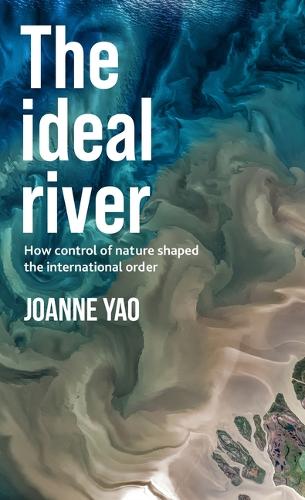
The Ideal River: How Control of Nature Shaped the International Order
(Paperback)
Available Formats
Publishing Details
The Ideal River: How Control of Nature Shaped the International Order
By (Author) Joanne Yao
Manchester University Press
Manchester University Press
17th July 2024
United Kingdom
Classifications
Tertiary Education
Non Fiction
Geopolitics
Limnology (inland waters)
Colonialism and imperialism
320.12
Physical Properties
Paperback
264
Width 156mm, Height 234mm, Spine 14mm
373g
Description
This book examines the geographical imaginaries that underpinned international efforts to create the first international organisations along the Rhine, Danube, and Congo Rivers. In doing so, these imaginaries helped constitute the early international order in the nineteenth century and continues to underpin modern global governance today.
Environmental politics has traditionally been a peripheral concern for international relations theory, but increasing alarm over global environmental challenges has elevated international societys relationship with the natural world into the theoretical limelight. IR theorys engagement with environmental politics, however, has largely focused on interstate cooperation in the late twentieth century, with less attention to how the eighteenth- and nineteenth-century quest to tame nature came to shape the modern international order.
The ideal river examines nineteenth-century efforts to establish international commissions on three transboundary rivers the Rhine, the Danube, and the Congo. It charts how the Enlightenment ambition to tame the natural world, and human nature itself, became an international standard for rational and civilised authority and informed our geographical imagination of the international. This relationship of domination over nature shaped three core IR concepts central to the emergence of early international order: the territorial sovereign state; imperial hierarchies; and international organisations. The book contributes to environmental politics and international relations by highlighting how the relationship between society and nature is not a peripheral concern, but one at the heart of international politics.
Reviews
'This is a brilliant book: erudite, thoughtful, beautifully written, richly analysed and theoretically sophisticated. It makes us look again at the way control of rivers as nature, as resource, as colonial or territorial space has shaped so many international doctrines, institutions and contestations.'
Laleh Khalili, author of Sinews of War and Trade
'The book persuasively demonstrates how environmental politics can enrich our understanding of international organisations more generally.'
Stefan Dring, International Affairs
Author Bio
Joanne Yao is a Senior Lecturer in International Relations at Queen Mary, University of London
